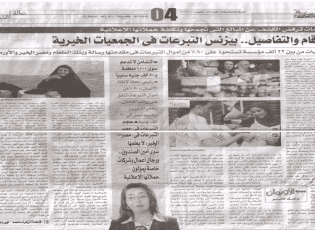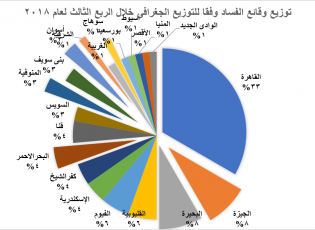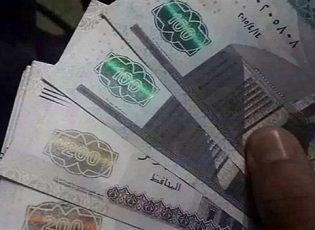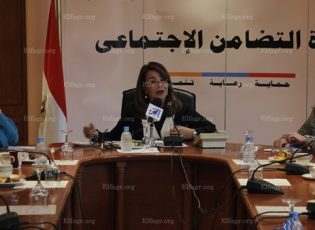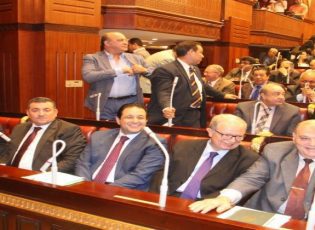Individually
Within the framework of its series entitled "Corruption Status Book", Partners for Transparency issued its annual report that covers the year 2016, and includes a review and analysis of legislative and procedural developments related to combating corruption, as well as the corruption incidents that were revealed during the past year and their distribution by sector and geography.
The report revealed that the year 2016 witnessed 968 incidents of corruption, and the year witnessed frequent political rhetoric emphasizing the fight against corruption, while there were no legislative developments of tangible feasibility with regard to surrounding and preventing corruption despite the presence of limited parliamentary activity and initiatives to form fact-finding committees or submit proposals for laws. It has not yet reached the stage of serious discussion in specific committees or plenary sessions.
The year 2016 witnessed strong activity for the Administrative Control Authority, as the authority receives political support from the Presidency of the Republic, and clear mandates to prepare reports on national projects before its opening, and the authority has succeeded in uncovering a large group of corruption and waste of public money cases in a number of state agencies and agencies, the most famous of which was the incident of bribery. Some of the employees and officials of the Egyptian State Council are accused, and other cases are related to some ministers' advisers and senior officials in the state.
In addition, the administrative prosecution has carried out remarkable activity in following up and investigating a huge number of cases within the state's administrative apparatus, and has succeeded in returning huge sums of money seized by some unlawfully, in addition to its efforts to develop a proposed law to combat corruption, but it has not yet seen the light of day.
On the other hand, there was no noticeable role for the Central Auditing Organization, and its performance was very slow compared to the administrative oversight bodies and the administrative prosecution, and it seems that the agency was negatively affected by the controversy that arose in the case of its former president, Counselor Hisham Geneina, and the media clamor that accompanied the case.
Sectorally, the Ministry of Supply witnessed the largest share of corruption incidents with 200 incidents, followed by the localities with 115 incidents of corruption, then agriculture with 99 incidents of corruption, then the Ministry of Health with 95 incidents, followed by the Ministry of Interior with 62 incidents, followed by the Ministry of Education with 58 incidents of corruption. Then, the Ministry of Investment with 32 incidents, then the Ministry of Communications and Information Technology with 31 incidents. Next comes the Ministry of Finance with 28 incidents, the Ministry of Housing with 27 incidents, the Ministry of Justice with 21 incidents, then the Ministry of Endowments with 20 incidents, followed by the Ministry of Transport with 19 incidents, then the Ministry of Irrigation and Water Resources with 17 incidents, then the Ministry of Petroleum with 16 incidents. Then came the Ministry of Information and the Ministry of Youth and Sports with 14 incidents of corruption for each of them, then the Ministry of Antiquities with 11 incidents, then the Ministry of Electricity, Social Solidarity and Higher Education came with 10 incidents for each of them, then the Ministry of Culture came with 9 incidents, and the rest were distributed The facts are limited to some other sectors.
Geographically, Cairo governorate witnessed the largest number of corruption incidents, with a score of 257 incidents, followed by Giza governorate with 116 incidents, followed by Qalyubia Governorate with 60 corruption incidents, while Alexandria governorate witnessed 51 corruption incidents, followed by Beheira Governorate 48, then Sohag Governorate with 44 incidents. Then Gharbia governorate with a score of 41 corruption incidents, followed by Dakahlia governorate with a score of 39, then Minya and Sharkia governorates with a score of 37 corruption incidents for each of them, then Menoufia governorate with a score of 31 corruption incidents, then Qena governorate with 29 incidents of corruption, followed by Beni Suef Governorate There were 24 incidents, then Assiut governorate witnessed 23 corruption incidents.
While the Fayoum governorate recorded 15 incidents of corruption, while the governorates of Port Said and Kafr El Sheikh witnessed 14 incidents for each of them, then each of the governorates of Ismailia and Aswan recorded 13 incidents for each of them, while the Red Sea Governorate recorded 12 incidents of corruption, while the New Valley Governorate witnessed 11 incidents of corruption, while Each of Suez and Luxor governorate has 10 incidents for each of them, then Damietta governorate with 8 incidents of corruption, while North Sinai Governorate witnessed 5 incidents, then Marsa Matrouh governorate comes in 4 incidents, and South Sinai comes in last place with two incidents.
Short link: https://pfort.org/en/?p=2007


